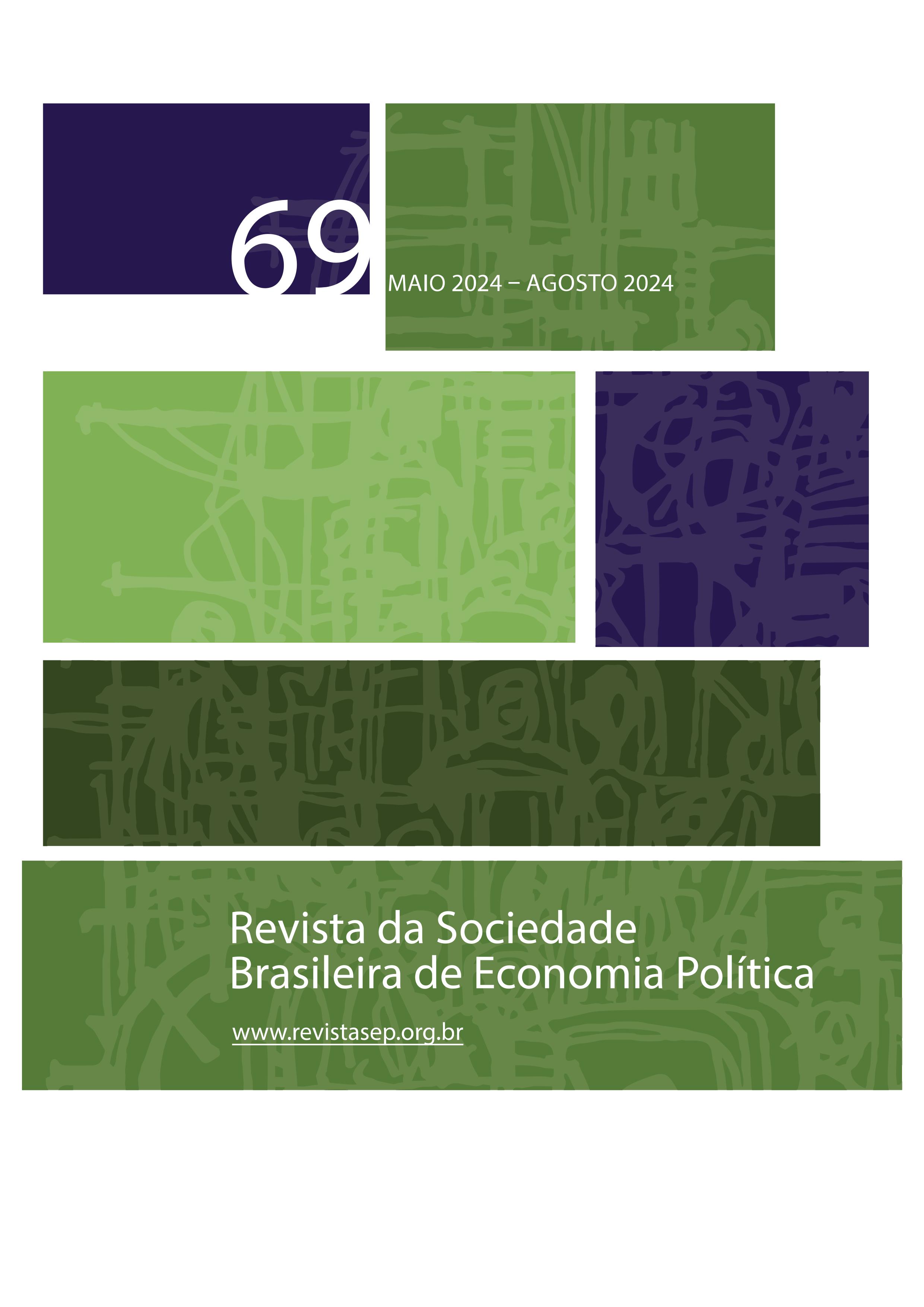A tese da estagnação secular e a tendência decrescente da taxa de lucro
uma comparação entre a abordagem ortodoxa e a marxista
DOI:
https://doi.org/10.69585/2595-6892.2024.1091Keywords:
estagnação secular, marginalismo, marxismoAbstract
This work investigate the thesis of secular stagnation from two economic perspectives: the orthodox theory and the Marxist theory. In the orthodox approach, the main author analyzed is Lawrence Summers, who argues that secular stagnation in industrialized countries is a result of a negative real interest rate at full employment equilibrium. On the other hand, in the Marxist approach, the main author analyzed is Eleutério Prado, who argues that secular stagnation in industrialized countries is a consequence of the tendency of the rate of profit to fall. It is argued that the orthodox approach is not only the current recognition of a problem already highlighted by Marxist theory, but also that its analysis is incapable of correctly identifying the cause of the phenomenon and, therefore, of giving it an effective and lasting economic policy.
References
EICHENGREEN, B. Secular stagnation: A review of the issues. In: TEULINGS, C; BALDWIN, R. (org).
Secular Stagnation: Facts, Causes, and Cures. 1. ed. Londres: CEPR Press, 2014
GORDON, R. J. Is US Economic Growth Over? Faltering Innovation Confronts the Six Headwinds.
NBER Working Paper, n. 18315, p. 1-23, ago 2012
GORDON, R. J. The turtle’s progress: Secular stagnation meets the headwinds. In: TEULINGS, C;
BALDWIN, R. (org). Secular Stagnation: Facts, Causes, and Cures. 1. ed. Londres: CEPR Press, 2014
HANSEN, A. H. Economic progress and declining population growth. In: American Economic Review,
v. 29, n. 1, p. 1-15, mar 1939
HARVEY, D. A condição pós-moderna: Uma Pesquisa sobre as Origens da Mudança Cultural. 1. ed.
Tradução de Adail Ubirajara Sobral e Maria Stela Gonçalves. São Paulo: Edições Loyola, 1992
HARVEY, D. O neoliberalismo: história e implicações. 1. ed. Tradução de Adail Ubirajara Sobral e Maria
Stela Gonçalves. São Paulo: Edições Loyola, 2008
HOBSBAWM, E. Era dos Extremos: o breve século XX: 1914-1991. 2. ed. Tradução de Marcos
Santarrita. São Paulo: Companhia das Letras, 1995
MARX, K. O capital: crítica da economia política: livro I: o processo de produção do capital. 2. ed.
Tradução de Rubens Enderle. São Paulo: Boitempo, 2017
MARX, K. O capital: crítica da economia política. 1. ed. Tradução de Regis Barbosa e Flávio R. Kothe.
São Paulo: Abril Cultural, 1984, v. 3
MAZZUCATO, M. Missão economia: um guia inovador para mudar o capitalismo. 1. ed. Tradução de
Afonso Celso da Cunha Serra. São Paulo: Portfolio-Penguin, 2022
MAZZUCATO, M. O estado empreendedor: desmascarando o mito do setor público vs. o setor
privado. 1. ed. Tradução de Elvira Serapicos. São Paulo: Portfolio-Penguin, 2014
PRADO, E. A estagnação secular e o futuro do capitalismo. Marx e o Marxismo, v. 2, n. 3, p. 251-273,
ago/dez, 2014
SOLOW, R. M. A Contribution to the Theory of Economic Growth. The Quarterly Journal of Economics,
v. 70, n. 1, p. 65-94, fev 1956
SUMMERS, L. H. U. S. Economic Prospects: Secular Stagnation, Hysteresis, and the Zero Lower
Bound. Business Economics, v. 49, n. 2, p. 65-73, abr 2014
SUMMERS, L. H. Reflections on the ‘New Secular Stagnation Hypotheses’. In: TEULINGS, C;
BALDWIN, R. (org). Secular Stagnation: Facts, Causes, and Cures. 1. ed. Londres: CEPR Press, 2014b
TEULINGS, C; BALDWIN, R. Introduction. In: TEULINGS, C; BALDWIN, R. (org). Secular Stagnation:
Facts, Causes, and Cures. 1. ed. Londres: CEPR Press, 2014
Downloads
Published
Issue
Section
License
Copyright (c) 2024 Revista da Sociedade Brasileira de Economia Política

This work is licensed under a Creative Commons Attribution 4.0 International License.




